When most of us think about health, we think, first and foremost of what goes into our bodies. We think of eating right and exercising regularly. But why don’t we think about what we’re putting on our skin? After all, our skin is our largest organ of all. On average, we tend to use around 10 different products on our skin on any given day. The Soil Association puts this number much higher at 18 products per day. Of course, all of these different lotions and potions contain chemicals. This is something that most of us fail to think about. But these chemicals and toxins are absorbed into our bloodstream. The answer to reducing the number of toxins and chemicals absorbed by our skin likely comes in the form of natural, organic and eco-friendly products.
What is organic beauty?
For all intents and purposes, organic beauty refers simply to how the product is formulated. These products must be made using organically farmed ingredients.
According to the Soil Association, all these means is that ingredients must be grown without the use of additives like Genetically Modified Organisms (GMO’s), herbicides and synthetic fertilisers. Then, according to the Soil Association, there is a category that goes a step further.
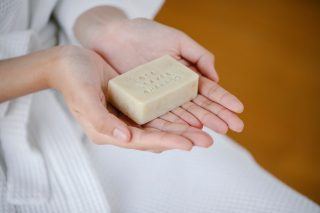
Photo by Sarah Chai from Pexels
Certified organic beauty products that sport the Soil Association symbol are also free from
- Animal testing
- GM
- Controversial chemicals
- Parabens and phthalates
- Synthetic colors, dyes, and fragrances
- Nanoparticles
Another important aspect is that the soil association symbol also means that the product contains higher levels of antioxidants. As well as that, it is made from sustainably sourced ingredients. The manufacturing process must be transparent and ingredients should be biodegradable. There should be minimal packaging. Packaging should be recycled and recyclable. It also means that the product or brand endorses the protection of wildlife and biodiversity.
The organic beauty market is growing exponentially…and that’s a great thing
Beauty brands have really been rallying when it comes to jumping on the organic, sustainable, and natural bandwagons. The increase in demand for organic and natural beauty products has driven large beauty brands to start taking organic beauty seriously. This is a market that is getting bigger by the day. Consumers now want less plastic packaging and waste. However, one of the most important requirements? Knowing what is inside the skincare and what it might be doing to (or for) their bodies.
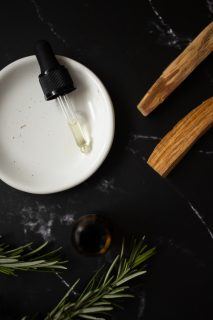
Photo by Monstera from Pexels
We know that what we put on our skin ends up in our bodies. In fact, according to Juice Beauty founder Karen Behnke, our skin absorbs a massive 60% of what we put on it. With that being said, there is nothing more important than what we choose to put on it daily. According to the Soil Association, the organic and natural beauty market grew by 23% in 2019 alone. This alone indicates a positive change in consumer thinking. This change is likely to encourage larger beauty companies to make the changes that consumers want to see.
Less plastic, more fantastic?
A major component when it comes to switching to organic beauty is the packaging. A lot of the ‘traditional’ skincare that we are used to using is made of plastic. Whilst some of this packaging is recyclable, it’s not always easily done. As with sustainable fashion, the organic beauty market is open to a lot of ‘greenwashing’. This means that customers are misled by packaging, but the brand itself doesn’t actually technically lie.
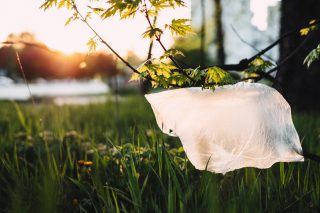
Photo by freestocks.org from Pexels
So, one might automatically think that because glass is more easily recyclable than plastic, the product in the glass packing is the better option. However, this is not always the case. There are, unfortunately, lots of mitigating factors when it comes to the industry and how sustainable the packaging is. If, for instance, the glass container in question has to be imported via air, it’s likely that the negatives of air travel completely undermine the ‘easier’ recycling of the bottle.
Why you should choose organic beauty products
According to Glory Juice Company, there are three major reasons why switching to organic beauty products should be a priority. It’s better for your skin, your health, and the environment.
When it comes to organic skincare, the ingredients have to meet the same standards as organic food. That means there are no harsh chemicals, pesticides, or fertilizers used. According to Glory Juice Co, most of the chemicals used in skincare are nothing more than cheap fillers. They often make the skin look temporarily brighter. However, in the long run, they end up doing more harm than good. Chemical additives can cause irritation, sensitivity and can even clog pores.
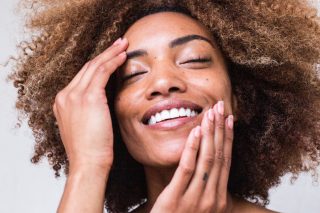
Photo by Park Street on Unsplash
Organic beauty products are also much better for your health. Many of the beauty products you might be tempted by at your local drugstore contain chemicals. Many of these chemicals disrupt the endocrine system. This included phthalates, sodium lauryl sulfate, and parabens, all of which are known carcinogens. And can have a negative impact on the immune, reproductive, and endocrine systems. Of course, the more products you use, the more likely these chemicals are to become toxic for the body. Another major plus of organic skincare is that it’s much better for the environment. The lack of harsh chemicals means that there is less toxic waste going into the earth via drainage systems.
References
https://www.soilassociation.org/take-action/organic-living/beauty-wellbeing/what-is-organic-beauty/
https://www.dermstore.com/blog/5-reasons-to-use-organic-beauty/
https://www.organicauthority.com/energetic-health/skincare-organic-beauty-products
https://www.elle.com/uk/beauty/make-up/articles/g31306/eco-friendly-beauty-products/
https://gloryjuiceco.com/blogs/glorylife/why-organic-skincare-the-benefits-of-using-natural-products


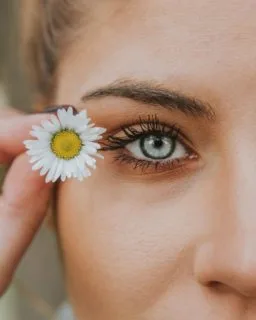


![women [longevity live]](https://longevitylive.com/wp-content/uploads/2020/01/photo-of-women-walking-down-the-street-1116984-100x100.jpg)










